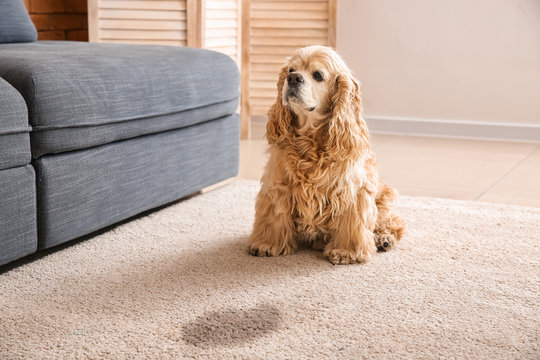Understand why your dog is peeing in the house
When a dog urinates in the house, it can be frustrating and even upsetting. There are several reasons why a dog might relieve itself indoors, and it’s important to try to understand the root cause of the problem before taking corrective action. In some cases, a dog may urinate in the house because they are not fully housetrained. This is often the case with puppies or rescued dogs who have not had consistent exposure to the outdoors. A dog may also urinate indoors if it is experiencing anxiety or stress. Changes in routine, such as a new baby in the family, can trigger this behavior. Finally, a dog may urinate in the house because of a medical condition such as a urinary tract infection. If your dog is urinating indoors, it’s important to consult with your veterinarian to rule out any potential health problems. Once any medical issues have been ruled out, you can begin working on behavioral correction. With patience and consistency, you can help your dog learn to relieve themselves outdoors – and enjoy a clean and dry house in the process!

Take your dog to the vet if necessary
If your dog starts peeing in the house, it’s important to take him to the vet to rule out any medical problems. A urinary tract infection, for example, can cause dogs to feel an urgency to pee even if they’ve just been outside. Other health problems can also cause changes in bathroom habits, so it’s important to have your dog checked out if you notice any changes. In most cases, a simple trip to the vet will clear up the problem and help you get your dog back on track.
Start potty training your dog using positive reinforcement
Dog obedience training in Salt Lake City is a great way to get your dog started on the path to good potty habits. The key to success with this method is to be consistent and use positive reinforcement every time your dog successfully goes potty in the desired location. Begin by confining your dog to a small area, such as a bathroom, with easy-to-clean flooring. Take your dog out frequently, and always praise and treat your dog when he or she goes potty in the desired location. With patience and consistency, you will soon have a dog that is potty trained using this positive reinforcement method.
Clean up any accidents as soon as they happen
Dealing with accidents is a part of dog ownership, but it’s important to clean up any accidents as soon as they happen. Not only will this help to prevent stains and odors, but it will also discourage your dog from repeating the behavior. If your dog urinates inside, be sure to clean the area thoroughly with an enzymatic cleaner. This type of cleaner breaks down the urine proteins, making it less likely that your dog will be attracted to the same spot in the future. If your dog has a solid bowel movement indoors, simply scoop it up and dispose of it in the toilet. Again, it’s important to clean up right away to avoid any lingering odors. By being diligent about cleaning up accidents, you can help to keep your home clean and odor-free.
Be consistent with rules and rewards
Dogs are creatures of habit, and they thrive on consistency. If you want your dog to stop peeing in the house, you need to be consistent with both rules and rewards. First, establish clear rules about where your dog is allowed to go to the bathroom. Every time they put it in the appropriate spot, be sure to praise them lavishly. Conversely, if they have an accident in the house, provide a gentle correction and then take them outside immediately so they can finish in the right place. Consistency is key when it comes to housetraining your dog, so don’t give up if there are setbacks along the way. With patience and persistence, you can achieve your goal of having a dog that goes to the bathroom only when you want them to.
Don’t punish your dog for accidents that have already happened
If you come home to find that your dog has peed in the house, it’s important not to punish them for it. Punishing your dog after the fact will only serve to confuse and scare them, and it won’t do anything to prevent future accidents. Instead, focus on preventing accidents from happening in the first place. Make sure your dog has plenty of opportunities to go outside, and monitor their behavior closely so that you can take them out as soon as they show signs that they need to go. With a little patience and perseverance, you can help your dog learn to hold their bladder until they can make it outside.
To read more on topics like this, check out the House category

Leave a Reply